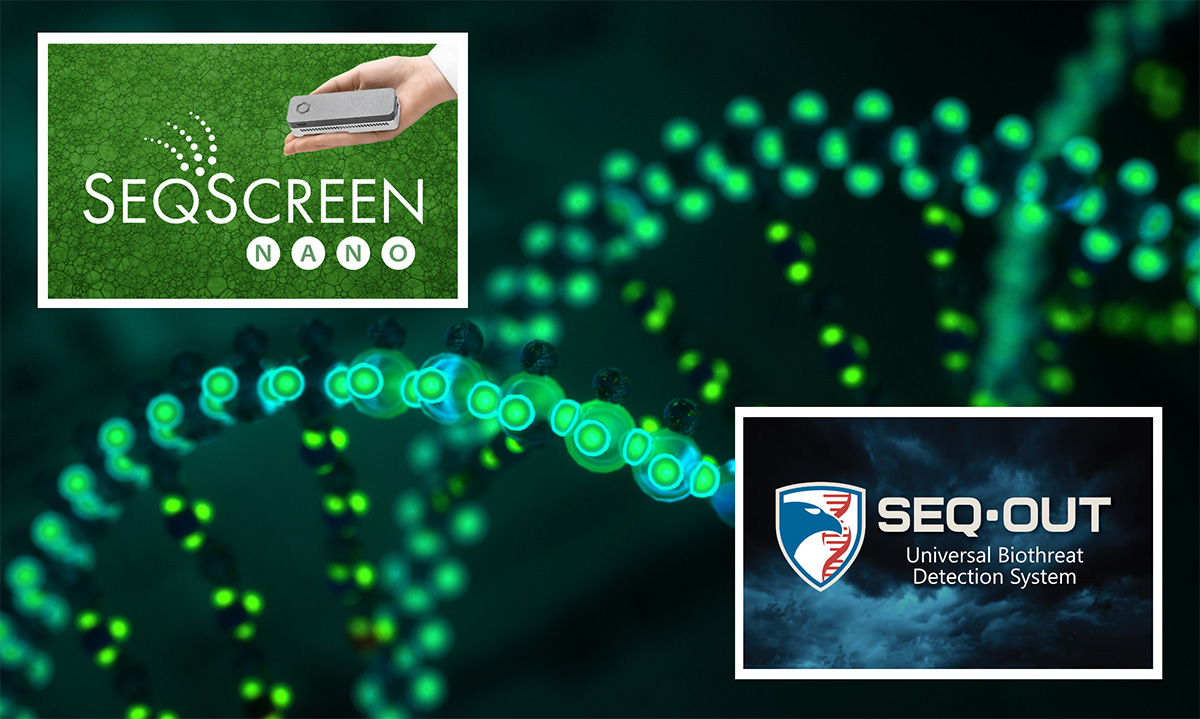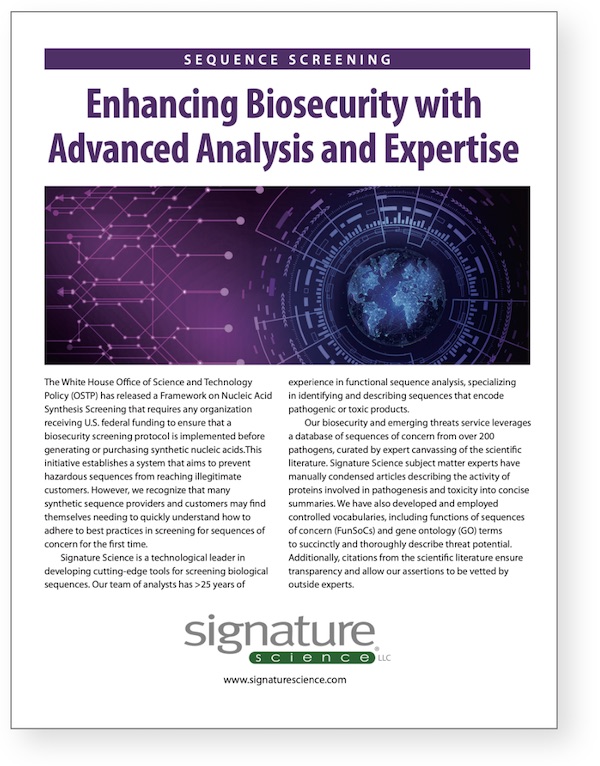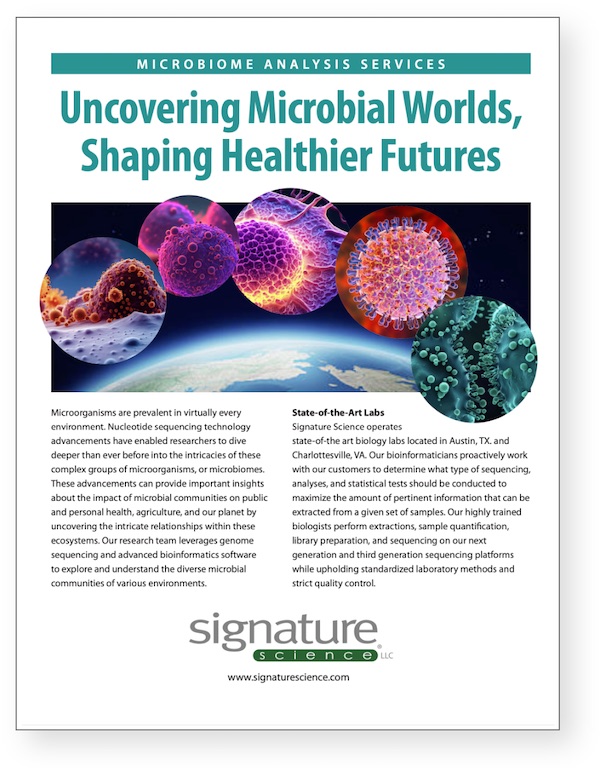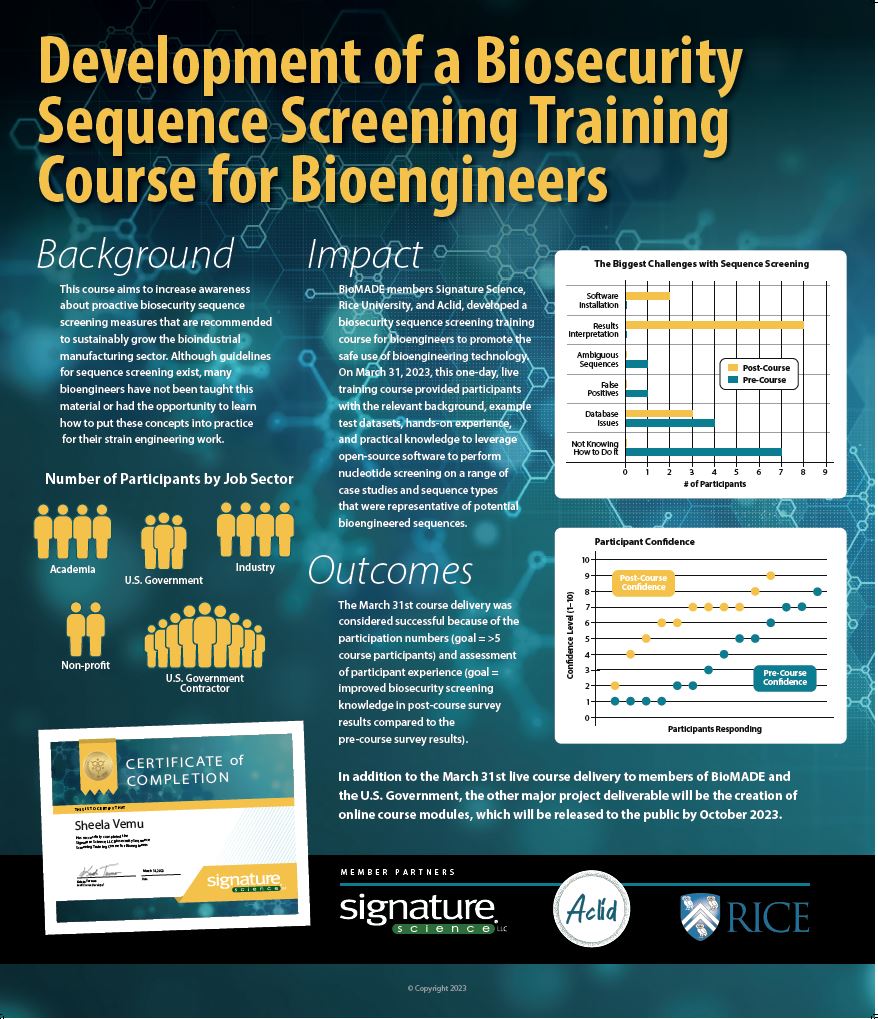Our mission is to empower our clients with advanced data analysis capabilities and proactive measures to combat biosecurity threats, ensuring protection against pandemics, bioterrorism, and emerging infectious diseases.

Biosecurity and Emerging Threats
Signature Science experts offer a thorough exploration of the functional aspects of nucleotide sequences, going beyond taxonomy to analyze the practical implications of any sequence of concern. Employing advanced data analysis techniques, we meticulously scrutinize these sequences for potential biosecurity concerns and describe their mechanisms of pathogenesis and threat levels in a standardized manner. This is especially crucial in the field of synthetic biology, where the manipulation of genetic material can lead to the creation of novel organisms or pathogens. Our analysis capabilities are also vital to understanding the natural evolutionary changes in new pathogens, providing early detection and precise insights to mitigate emerging threats. This proactive approach enables our clients to decode the functional blueprints, leading to effective intervention and more comprehensive protection against global health risks.
Offerings:
- Nucleotide sequence screening
- Third-party biosecurity software testing and evaluation
- Customized test and evaluation datasets
- Consulting services to setup a biosecurity screening framework
- Microbial forensics method development
- Sequencing of synthetic nucleotides or pathogens (BSL-2) with Illumina MiSeq, NextSeq, or ONT MinION instruments.
PDF; 692k


Krista Ternus, PhD
Genomics Specialist
For more information about Biosecurity and Emerging Threats:
Bioinformatics Training
Signature Science supports our clients in gaining practical and relevant bioinformatics knowledge and skills, equipping them to harness the power of data-driven discovery for their specific problem sets. Our team is able to develop customized training programs, virtually and in-person, to fit your laboratory’s needs.
One example of our bioinformatics training is our Biosecurity Sequence Screening Training Course for Bioengineers, which aims to increase awareness of the proactive safety measures needed to sustainably grow the bioindustrial manufacturing sector. To our knowledge, this is the only publicly available course of its kind.
Supporting Publication from Trends in Biotechnology
Microbiome Analysis
Our microbiome analysis service hinges on the pillars of advanced sequencing and advanced bioinformatic methodologies. It involves exploring the microbial communities inhabiting diverse environments, such as the human body, animals, plants, soil, water, and air. Through meticulous DNA and RNA sequencing, we unravel the rich tapestry of microorganisms – bacteria, viruses, fungi, and archaea – that shape these ecosystems. Unbiased genome sequencing ensures that we capture the full spectrum of microbial diversity without prejudice, enabling a comprehensive understanding of complex microbial communities. In addition, bulk RNA sequencing unveils the functional characteristics of microbiomes, further elucidating the dynamic relationship between microbes and their host or environment. Advanced bioinformatics plays a pivotal role unraveling the intricate relationships within these ecosystems, discerning patterns, and deciphering functional potential. This integrated approach yields profound insights into the role of microorganisms in health, disease, ecology, and beyond. By leveraging cutting-edge bioinformatics tools, microbiome sequence analysis emerges as a powerful tool in unlocking the secrets of microbial communities and their impact in our world.
Offerings:
- Taxonomic and functional classification of microbiomes
- Metagenomic and metatranscriptomic data analysis
- Microbiome data visualization
- In silico development of simulated microbial community sequences
- Benchmarking of relevant bioinformatics tools
- Microbiome sample DNA and RNA extractions
- DNA and RNA sequencing of microbial communities with Illumina MiSeq, NextSeq, or ONT MinION instrumentss.


Josh Gil, PhD
Bioinformatician

